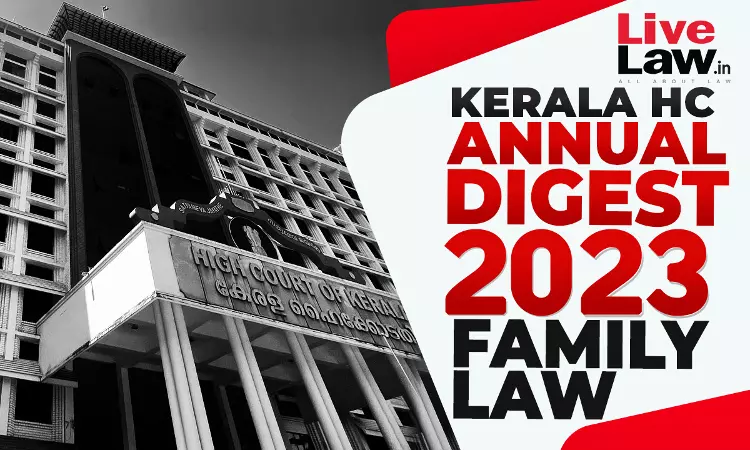- Home
- /
- High Courts
- /
- Kerala High Court
- /
- Kerala High Court Family Law Digest...
Kerala High Court Family Law Digest 2023
Navya Benny
16 Jan 2024 11:35 AM IST
[Joint Will] Property Of Only Deceased Testator Bound By Disposition; Does Not Operate Against Property Of Surviving Testator Till Death: Kerala HCCase Title: Jayadevi v. Narayana Pilla & Ors.Citation: 2023 LiveLaw (Ker) 6The Kerala High Court laid down that on the death of one among the testators, either in the case of joint Will or a mutual Will, the property left out by the...
Next Story



